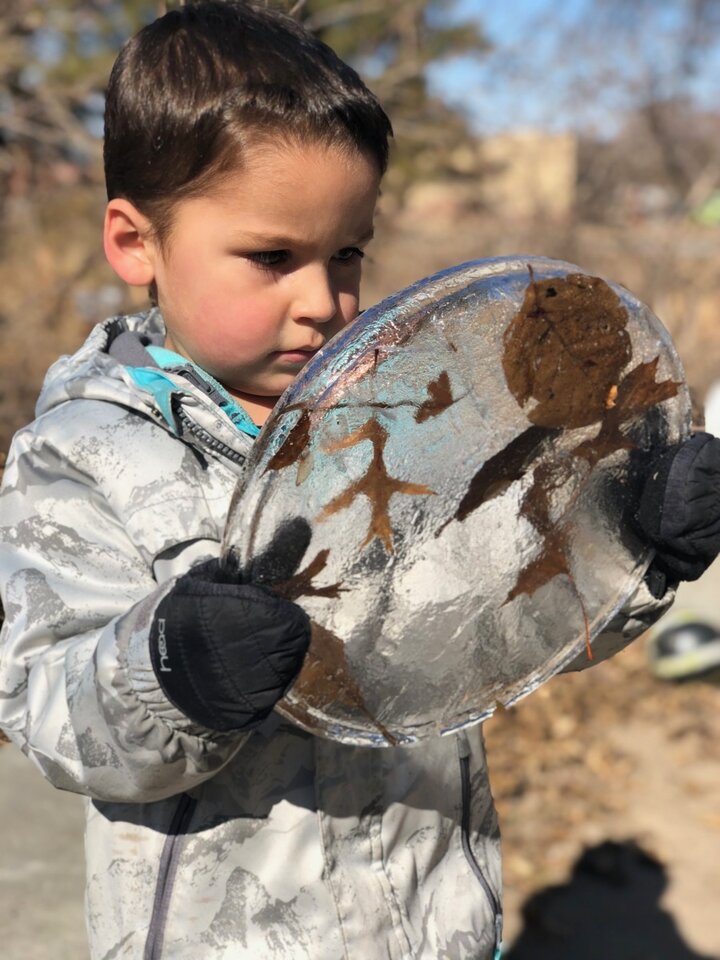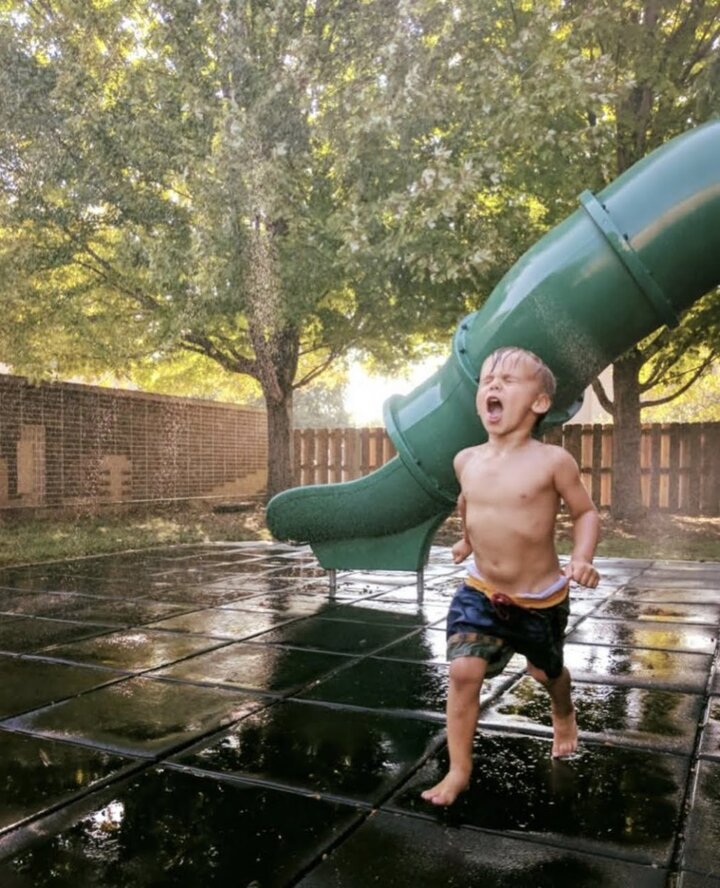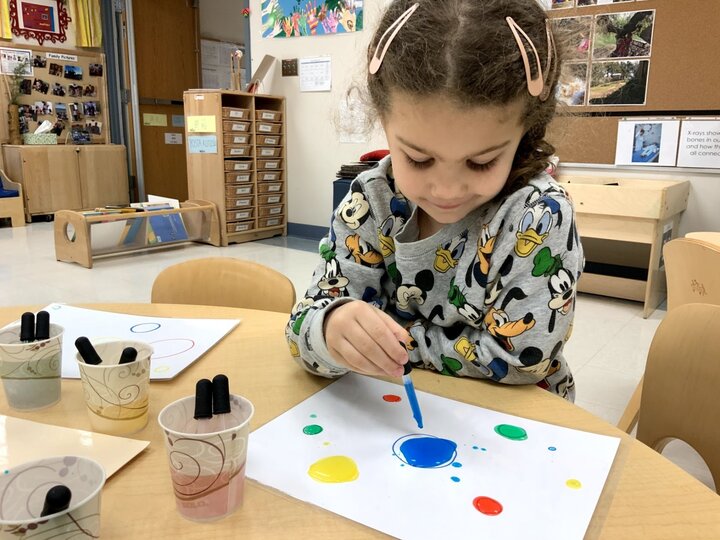Inquiry-Based Curriculum
The Ruth Staples Child Development Lab (CDL) utilizes a curriculum based upon children’s interests and abilities conducted in a project approach format. Children actively participate in constructing their learning through a play-based negotiated environment rooted in problem solving and inquiry. At the heart of this curriculum is the investigation of child-initiated topics. Our children along with their teachers explore, investigate and experiment with materials and activities to discover answers to their questions. Teachers ensure all developmental goals are integrated into the curriculum by using the Desired Results Developmental Profile framework. All components of the Nebraska Early Learning Guidelines are integrated into the curriculum goals of the classroom environments.
Teachers carefully observe children to understand their thinking and reflect with one another to continue to support and challenge children in their inquiries. The ongoing projects resulting from children’s inquiries are not pre-planned units but rather authentic learning experiences. As projects progress teachers reflect, re-evaluate and plan for upcoming experiences. The classroom environment is arranged to support and promote on-going projects but is also adapted to meet the needs of individual children.
Children’s learning is made evident through a variety of documentation. Examples of documentation of children’s learning can be found in individual children’s portfolios, family group documentation booklets, PowerPoint presentations and documentation panels. Teachers also share examples of children’s learning with parents during parent-teacher conferences held 3 times each year (once per semester; Fall, Spring & Summer).
Teachers carefully observe the interests and abilities of children in order to select materials and equipment that support our curriculum, meet our program goals, and foster the achievement of desired outcomes for children. Master Teachers will work with student teachers to ensure that these objectives are accomplished.


Foundations in Place-Based Education
Place-Based Education immerses students in local heritage, cultures, landscapes, opportunities, and experiences, using these as a foundation for the study of language arts, mathematics, social studies, science and other topics across the curriculum.
Principles of Successful Place-Based Education
- Learning takes place on-site in the outdoor classroom, and in the local community and environment.
- Learning focuses on local themes, systems, and content.
- Learning is personally relevant to the learner.
- Learning experiences contribute to the community’s vitality and environmental quality and support the community’s role in fostering global environmental quality.
- Learning is supported by strong and varied partnerships with local organizations, agencies, businesses, and government.
- Learning is interdisciplinary.
- Learning experiences are tailored to the families enrolled in the program.
- Learning is grounded in and supports the development of a love for one’s place.
- Local learning serves as the foundation for understanding and participating appropriately in regional and global issues.
Second Step Social-Emotional Learning Curriculum
Skills and concepts are taught through short activities embedded in the daily routine. Executive-function skills are the foundation for self-regulation and social-emotional competence. Brain Builders taught throughout the program focus on developing these skills by teaching children to pay attention, use memory, and manage behavior. We implement this curriculum throughout the year introducing topics as needed in response to classroom observations and children’s developmental social-emotional needs.
Baby Doll Circle Time Curriculum
Interactions lead young children and their baby dolls in engaging activities that fall into the categories of Peek-a-boo, Body Parts, Booboos, I Love You Rituals, Stop and Go, and Emotions. These activities promote the secure attachment that is vital to children’s lifelong success in building foundational skills across the curriculum.
Guiding Children’s Development using the Desired Results Developmental Profile Framework (DRDP)
- Approaches to Learning—Self-Regulation
- Social and Emotional Development
- Language and Literacy Development
- English Language Development
- Cognition, Including Math and Science
- Physical Development—Health
- History—Social Science
- Visual and Performing Arts
Activities and Field Site Visits
Activities for children are planned in advance with developmental objectives in mind. Activities should be based upon keen observations of the children’s abilities and interests.
Students and staff are encouraged to plan walking field trips on campus. The campus has a multitude of opportunities for field trips including the union, arboretum, and animal sciences. In addition to providing stimulating educational opportunities for the children, on-campus field trips increase the visibility of the lab on campus and may encourage collaborations between the lab and other colleges/departments.
